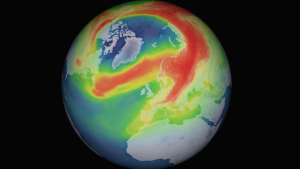The number of young people and adults who regularly use cigarettes has risen to one third. This is evident from the representative long-term study German Survey on Smoking Behavior (DEBRA), which was conducted under the direction of Daniel Kotz at the University of Düsseldorf.
Since 2016, the team around Kotz has asked around 2000 people from 14 years of age to consume tobacco and alternative nicotine products such as e-cigarettes. The researchers have found that the proportion of smokers has grown steadily since the beginning of Corona pandemic. While in the early 2020 between 26 and 27 percent of the respondents, they were almost 31 percent at the end of 2021. By May 2022, almost 33 percent of the participants would have stated regularly. A publication of the current results in a specialist magazine has so far been pending.
It is likely that the rising smoking rate is generally an effect of the pandemic, said the epidemiologist Kotz of the German Press Agency on the occasion of the World No Smoking Day on May 31; this is a frightening development. Especially with regard to the health damage: according to the Federal Statistical Office, 75,500 people died in Germany in 2020 as a result of smoking. By far the most common cause of death was cancer.
Cigarettes massive damage to the environment
It's not just people who are feeling the consequences of smoking: the environment is also being put under enormous strain. According to a recent report by the World Health Organization (WHO), the production and consumption of tobacco costs around 600 million trees, 200,000 hectares of land and about 22 billion tons of water every year. In addition, about 84 million tons of carbon dioxide would be released. The amount of CO2 corresponds to the emissions of about 17 million gasoline-powered cars annually.
Furthermore, around 4.5 trillion cigarette filters would end up in oceans and rivers every year, on civil climbing and soils as well as on beaches. The cost of eliminating away from thrown tobacco products almost always bear taxpayers and not industry. This cost Germany more than 186 million euros. The WHO therefore asked countries and cities to make industry more obliged to remove the tobacco sticks.



















